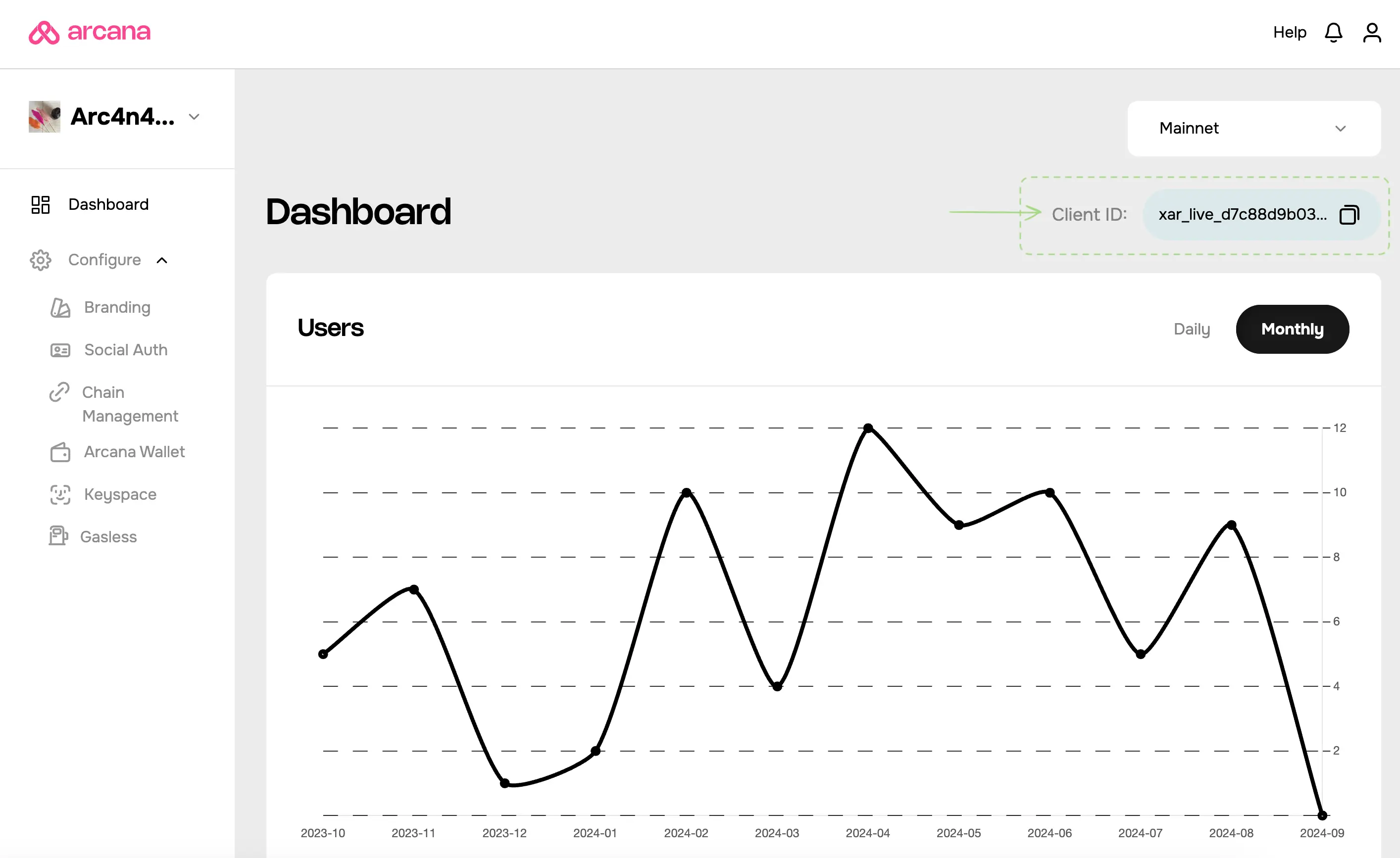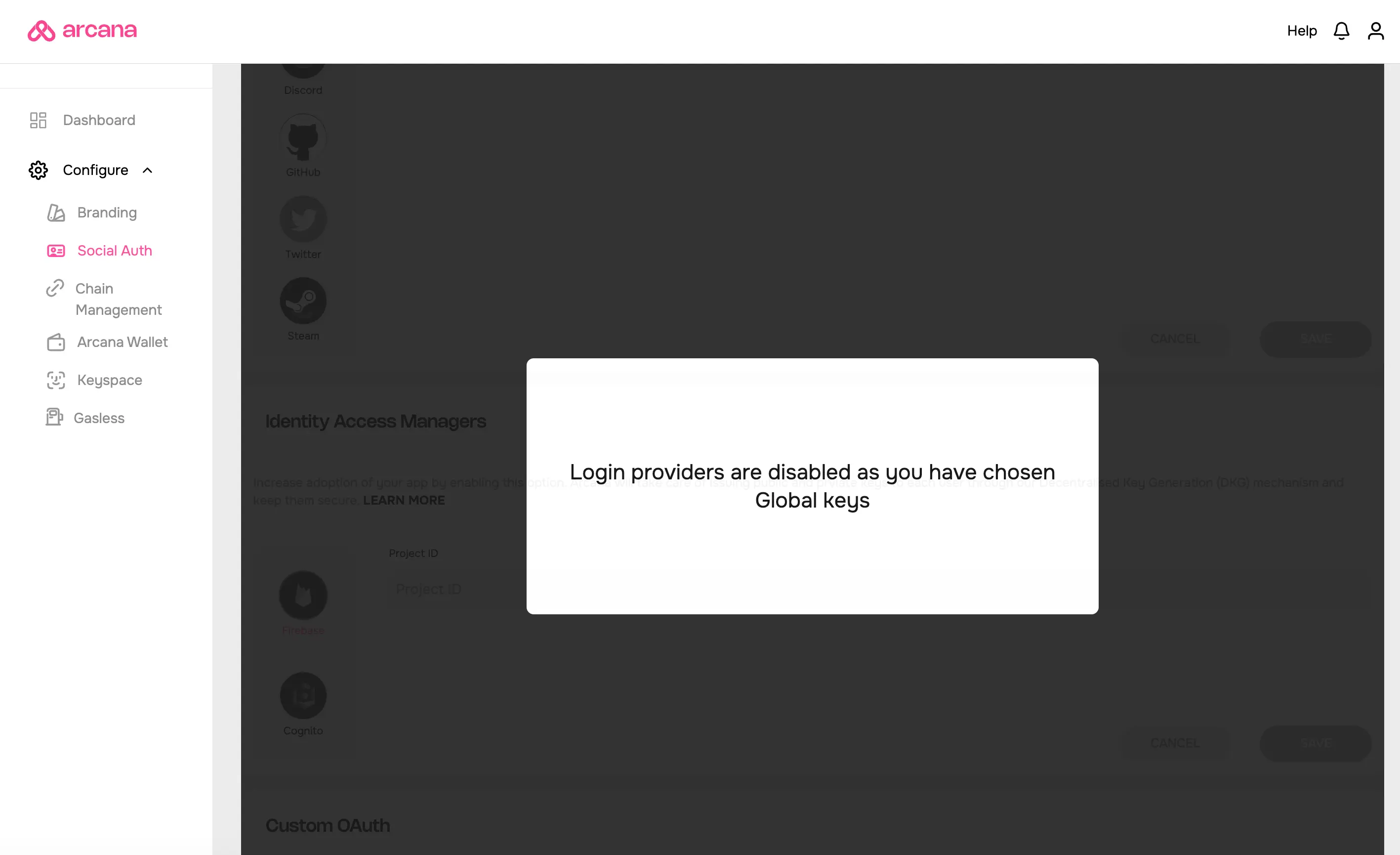Google Setup
Estimated time to read: 3 minutes
Configuring Google for apps using global keys differs from apps using app-specific keys.
Prerequisites
-
Log in to the Arcana Developer Dashboard: https://dashboard.arcana.network
-
Register the app by creating a new app entry in the dashboard.
Client ID
A default Testnet configuration profile is associated with every registered app. A unique Client ID is assigned for the Testnet profile. Only passwordless login is enabled by default.
A newly registered app can be deployed at the Arcana Testnet. Developers must create a Mainnet configuration profile to deploy it on the Mainnet. A new, unique Client ID is assigned to the Mainnet profile.
Global Keys
Apps that require global keys feature do not need to configure the Social Auth settings in the Arcana Developer Dashboard.
User onboarding via Google is automatically turned on for the app when global keys are enabled.
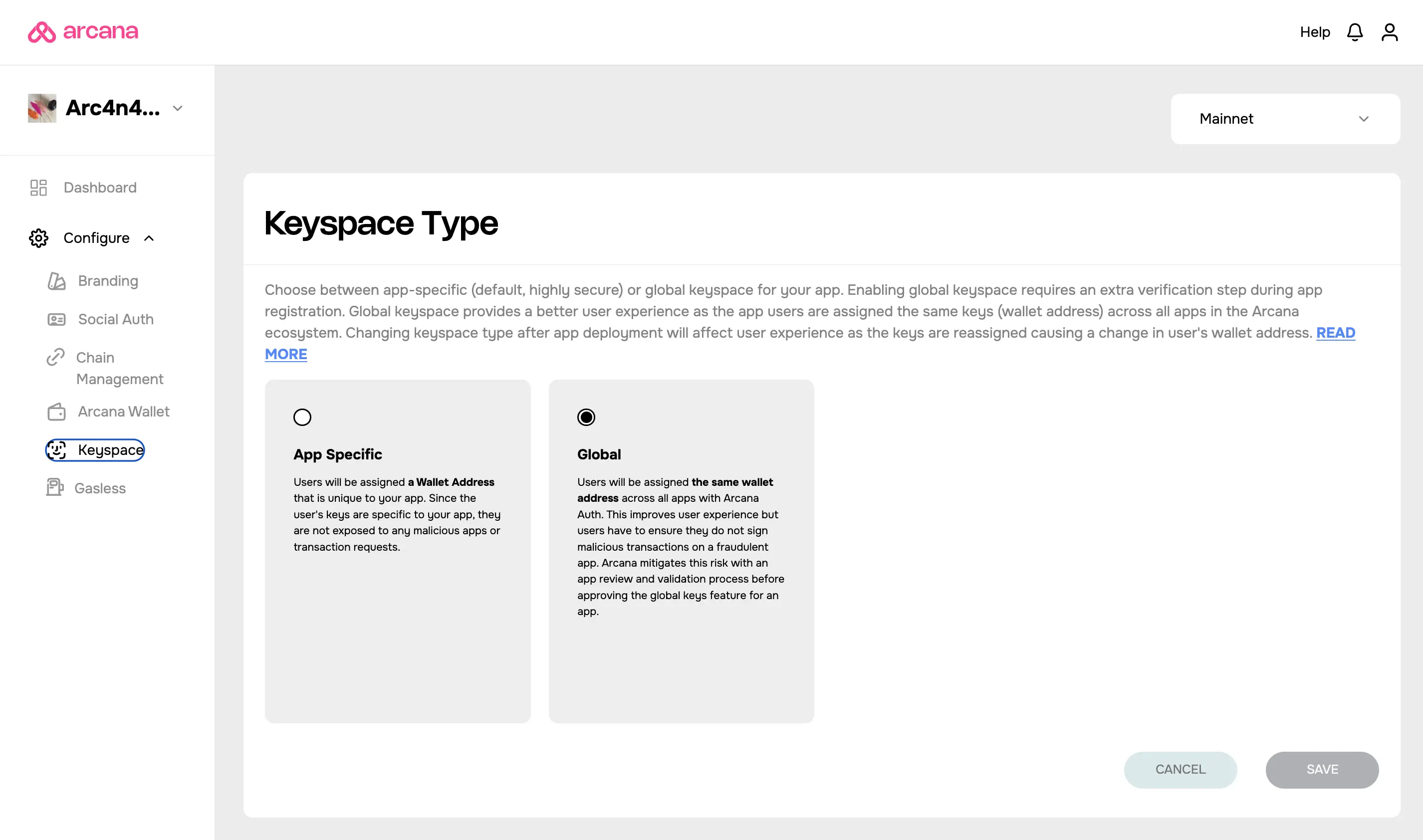
Global Keys Configuration Change
In the earlier versions of the Arcana Auth SDK, apps using global keys were required to configure Social Auth settings for the providers. This behavior has changed in the latest release of the Arcana Auth SDK.
If an app was configured for any social login providers and switches over from app-specific to global keyspace later, the Social Auth settings will be disabled altogether.
App-specific Keys
Follow these steps to configure the Social Auth settings and enable user onboarding via Google. It requires developers to use the Arcana Developer Dashboard and the Google Cloud Console.
1. Get Redirect URI
Select the app in the Manage Apps dashboard screen and click Testnet/Mainnet to configure Google in the respective configuration profile. Go to Configure > Social Auth. Copy the redirect URI shown on the top right.
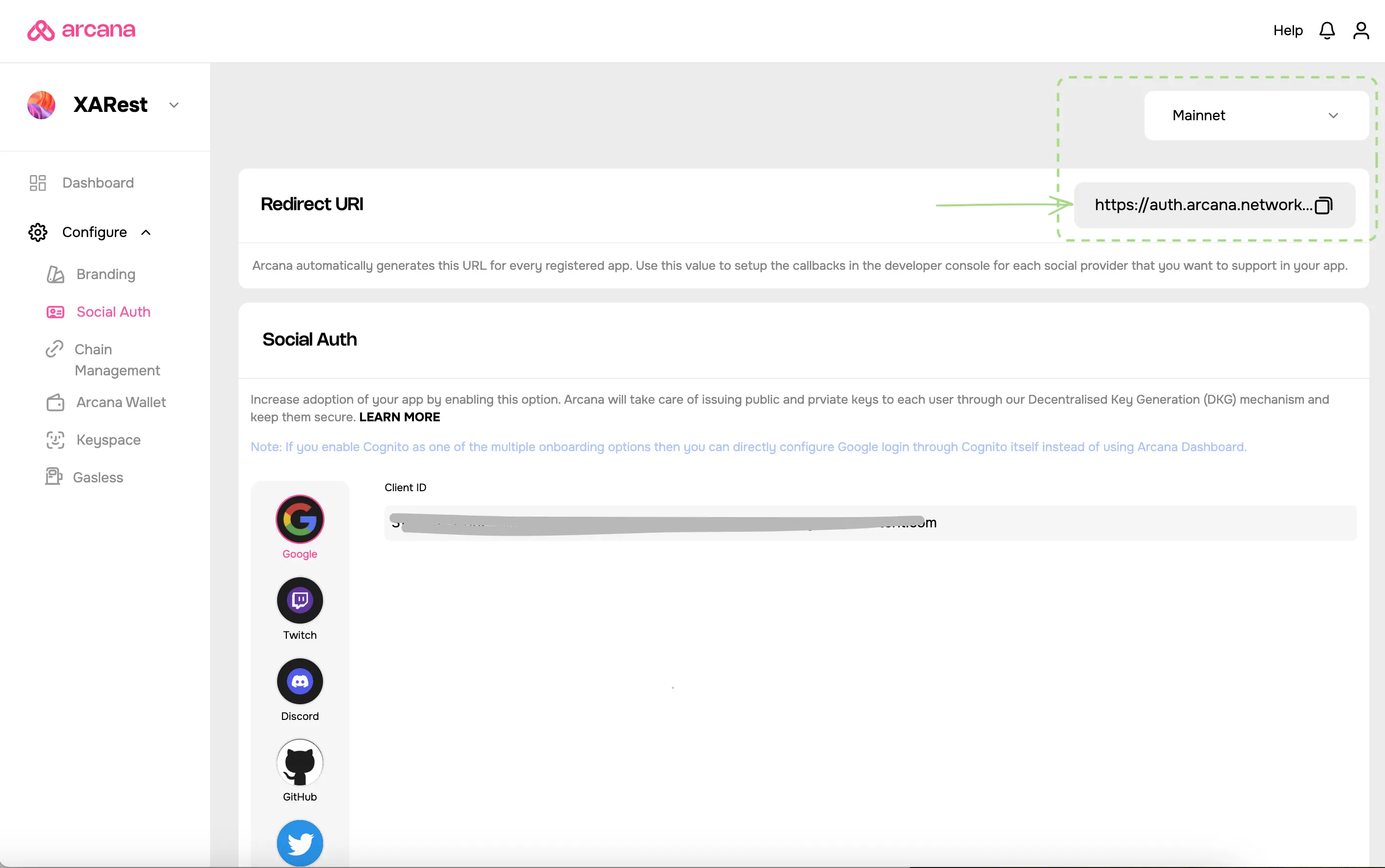
Do not close the Social Auth browser tab in the Arcana Developer Dashboard. Open another tab to access the Google Cloud Console and configure Google OAuth.
2. Get Google ClientID
Go to the Google Cloud Console. Create a new OAuth 2.0 credential for your dApp.
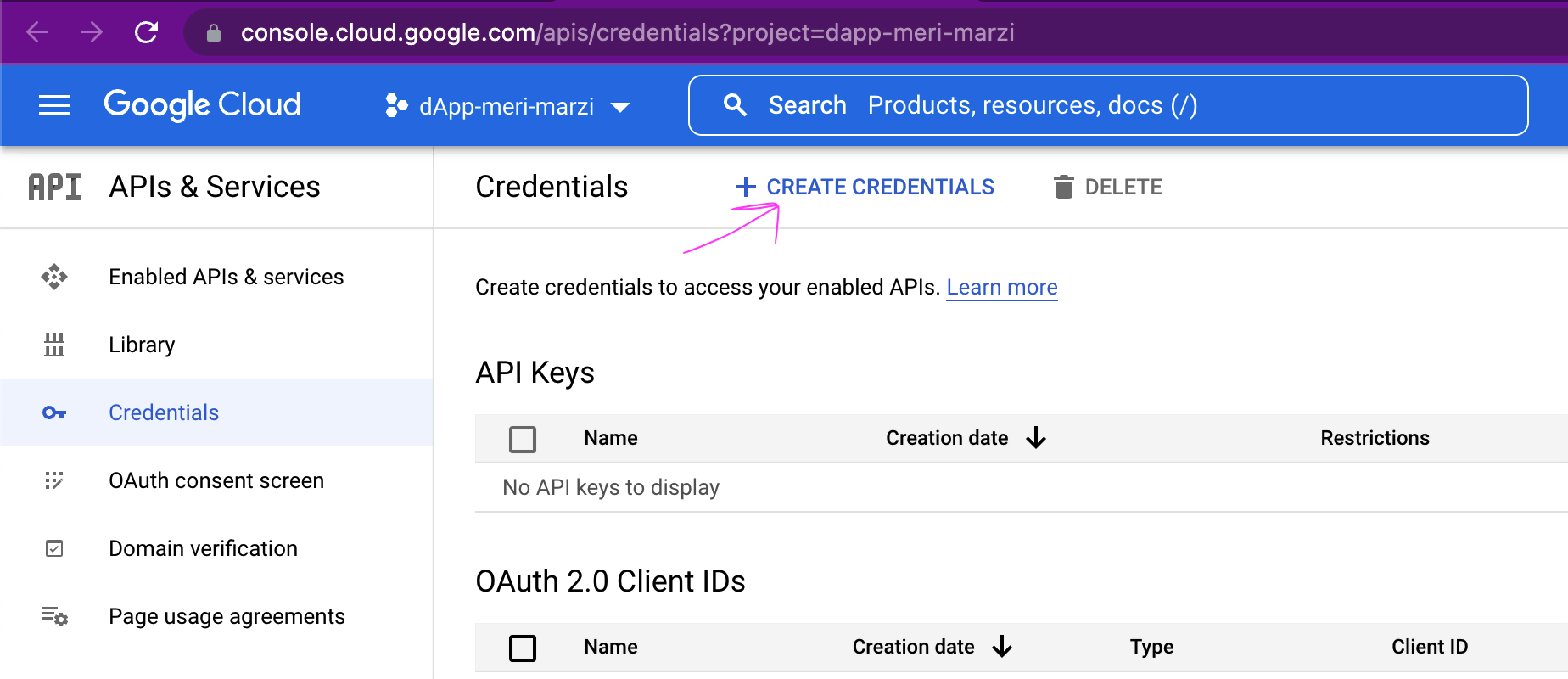
In the Google Cloud Console, select the option to set up credentials for a web application.
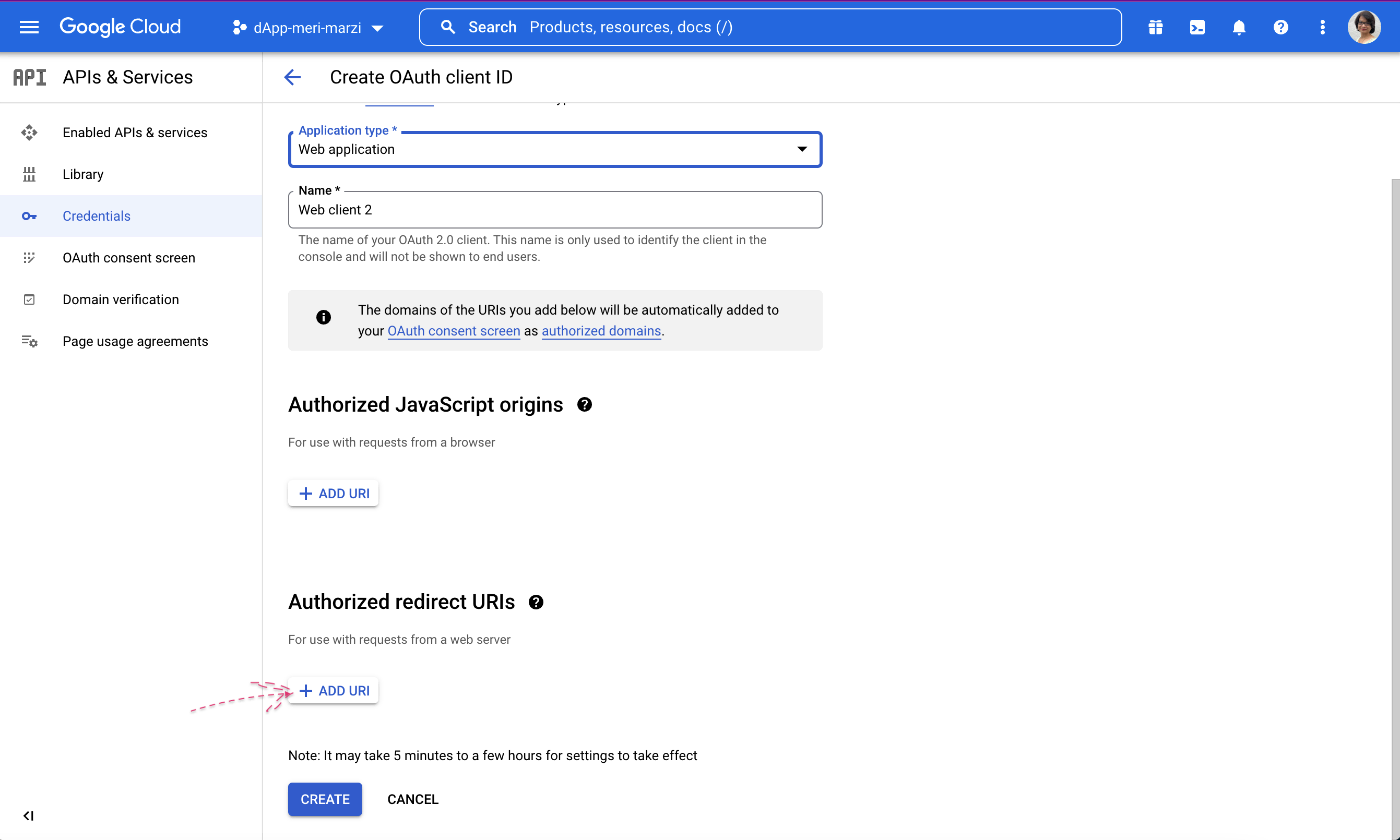
Specify the redirect URI value to the one that you saved in the previous step from the Auth tab of the Arcana Developer Dashboard.
Redirect URI
The redirect URI refers to the endpoint to which the Google OAuth 2.0 server can send authentication responses. These endpoints must adhere to Google’s validation rules.
Complete the steps in Google Cloud Console for creating a new OAuth 2.0 credential. It will generate a unique ClientID.
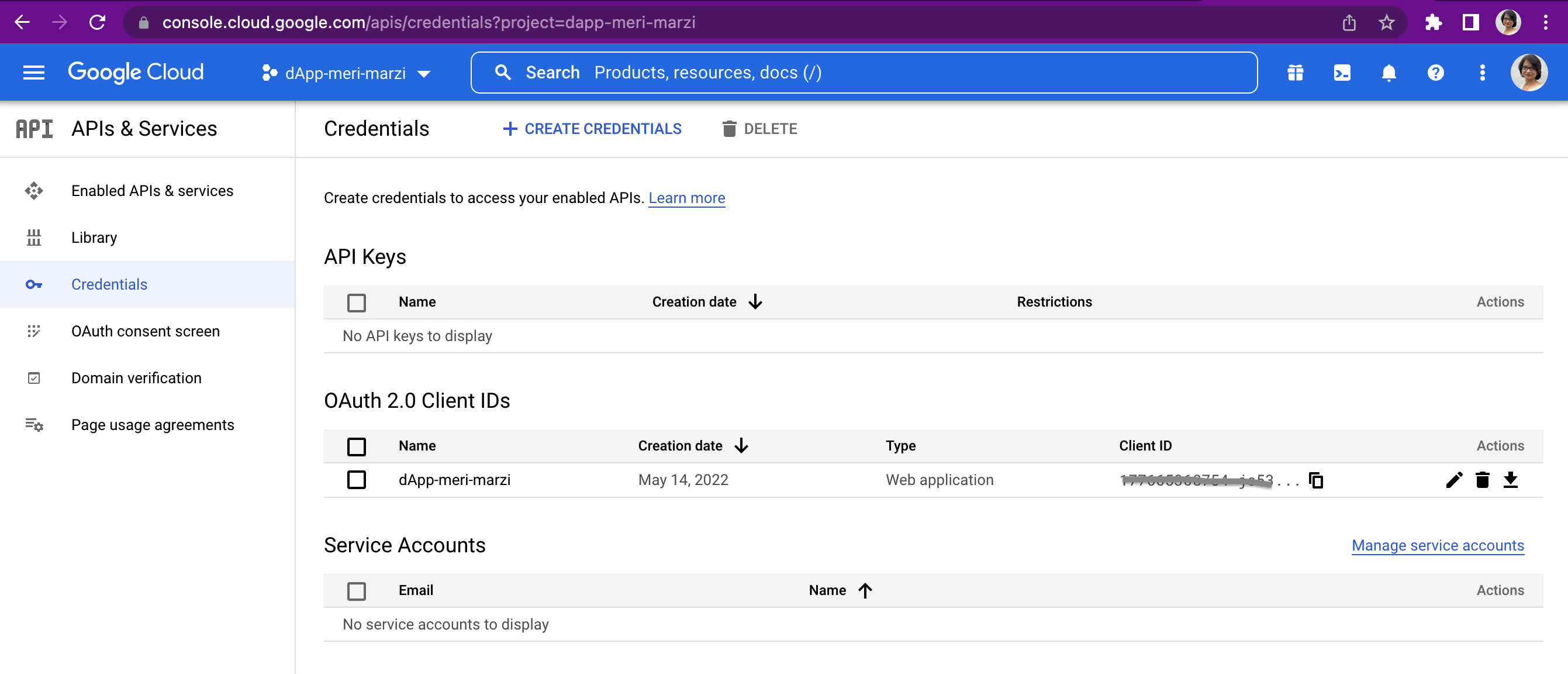
Save the Client ID assigned by Google. It will be required in the next step.
3. Update Social Auth
In the Arcana Developer Dashboard, click Configure > Social Auth. Refer to the empty fields next to the "Google" setting. Paste the Google Client ID copied in the previous step.
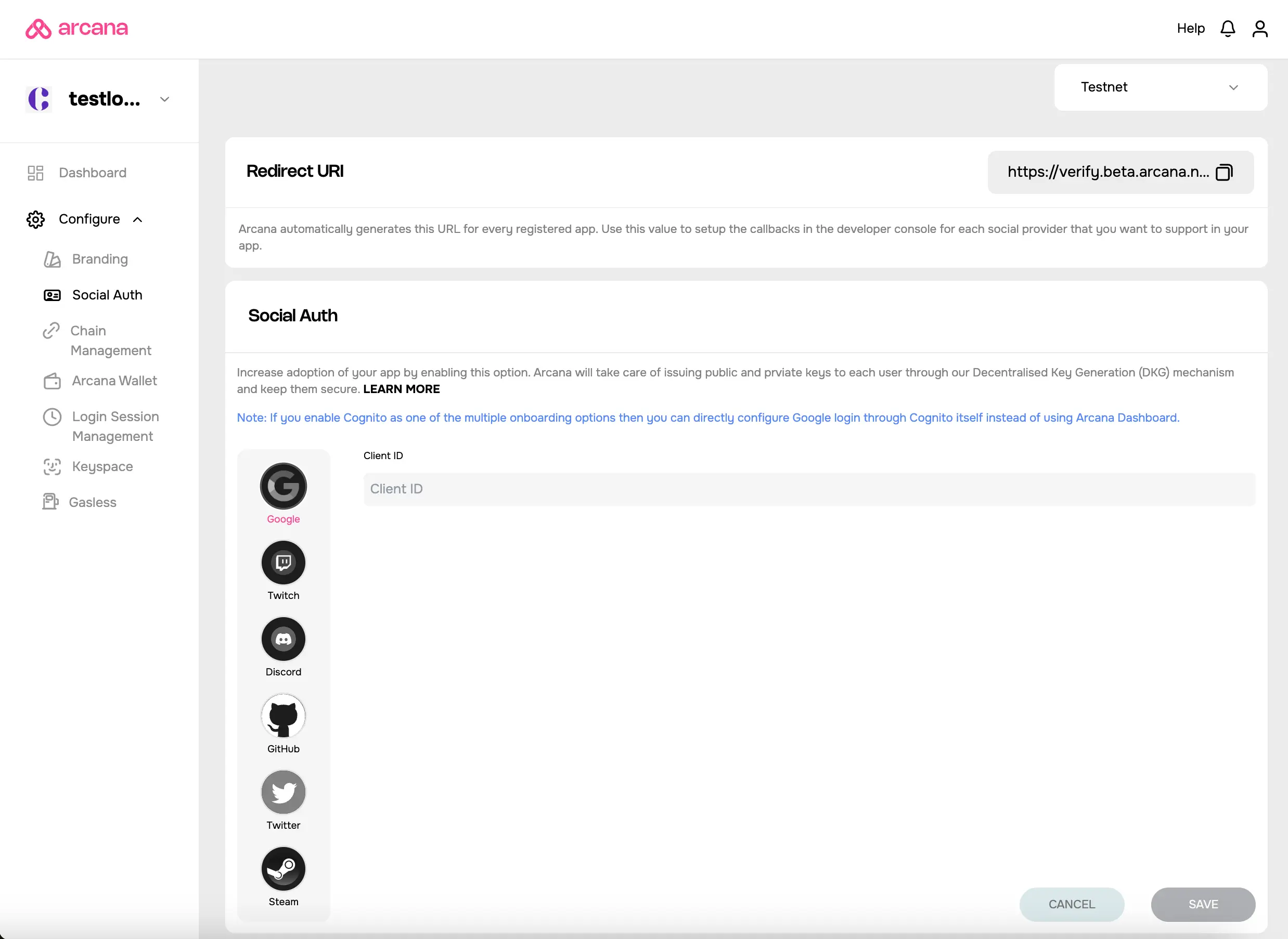
Save the Social Auth settings.
You are all set with the Google configuration!
